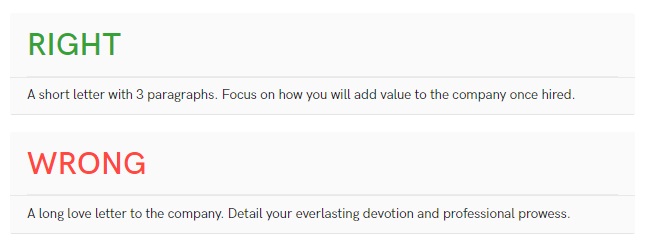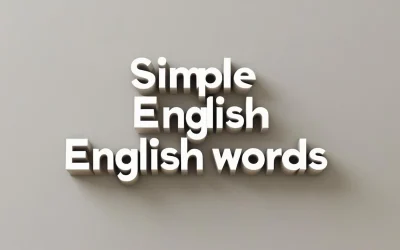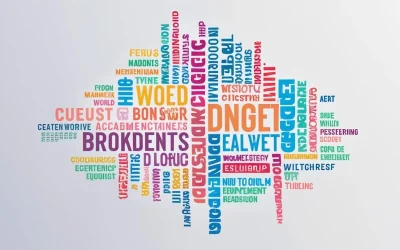Is a cover letter necessary? Are cover letters still relevant in 2024? What if the job posting doesn’t explicitly request one? Explore this guide to determine the appropriate course of action.
Is the inclusion of cover letters necessary? You find yourself questioning whether a cover letter is worth your time as you send out numerous job applications, meticulously refining your resume and exploring opportunities.
In the year 2024, you might wonder if cover letters hold any significance or if they are merely a redundant exercise. The reality is a bit more nuanced, but there’s no need to worry.
This article will address your cover letter queries:
1. Are cover letters always mandatory, and do they carry weight in the application process?
2. Do companies and employers actually take the time to read these letters?
3. Is it compulsory to include a cover letter with your application?
4. A proven method for crafting cover letters, should you find the need to write one.
What is your English level?
Find out your A1 A2 B1 B2 C1 C2 level of English with our online test and receive your English certificate.
1. Cover Letter or Not?
Is a cover letter necessary?
Is a cover letter necessary? A cover letter holds significance and is deemed necessary when the job offer explicitly requests one, when the employer, hiring manager, or recruiter specifically asks for it, when you are applying directly to a person whose name you know, or when someone has referred you for the position.
So, if you’re contemplating whether to include a cover letter, the answer is generally yes. Even if it’s not mandatory, it’s advisable to include one in most cases. There are only a few exceptions.
For instance, you may not require a cover letter when applying online, as some applicant tracking systems might not permit candidates to submit them. In such cases, you need not worry. However, in all other scenarios, it is highly recommended!
How important is a cover letter?
A cover letter holds significance, with approximately 26% of recruiters acknowledging that they read cover letters and deem them crucial in their hiring decisions. Another study, focusing on employer preferences, indicates that 56% of employers prefer applicants to include a cover letter along with their resume. Additionally, a CareerBuilder study highlights that 49% of HR managers consider a cover letter as the second most effective element for enhancing a resume, with customization ranking first.
What does that mean for you?
Consider this: While it’s true that a majority of recruiters may not actively read cover letters, approximately half of them still anticipate receiving one.
Here’s the rationale: Even if recruiters themselves don’t delve into cover letters, they might forward them to hiring managers or employers. In smaller companies, employers often review cover letters as a means of evaluating candidates. With fewer applications, it becomes more feasible to concentrate on each candidate.
Moreover, companies typically receive a multitude of resumes for each job opening. In order to streamline the process, they may dismiss resumes that are excessively lengthy or lack a cover letter.
When not to include a cover letter?
In brief, refrain from submitting a cover letter only when the job posting explicitly mentions that it is not allowed.
Furthermore, having no cover letter is preferable to having a poorly crafted one. (However, we will guide you on crafting a concise yet impactful letter shortly.)
Do I need a cover letter for a resume?
A cover letter might be an additional step you choose to take, but that’s precisely the point. Writing an optional cover letter becomes essential if you are genuinely committed to securing the job, whether it’s a full-time position, part-time role, or an internship. Surprisingly, 53% of employers believe that a resume alone is insufficient, yet only 47% of job seekers include cover letters. Avoid being part of the latter group.
So, yes, crafting a cover letter for your resume is necessary, especially when you need to address employment gaps or are transitioning between careers. Continue reading to discover how to transform your cover letter into a game-changer.
Here’s what a cover letter should look like—
Jane Smith
123 Magnolia Street
Flowerville, Minnesota 78954
213-444-8576
[email protected]
February 10, 2018
Mr. John Smith
CEO
Bloomingfields Marketing
4587 Iris Street
Flowerville, Minnesota 78954
Dear Mr. Smith,
I am writing to you out of interest for the position of Marketing Manager that I was told about by Penny Armstrong.
I can offer you the skills and experience I’ve gained from three years as a Marketing Manager at Blue Skies Marketing Solutions.
My experience with brand management, interdepartmental marketing initiatives, and video marketing techniques should make me ideal for the position. I will also bring to the table my experience managing a team of up to twenty people across different countries.
I understand that your new Marketing Manager is in charge of bringing Bloomingfields Marketing up to speed with the digital era. I would love to discuss with you how video marketing and brand management would play into this strategy.
Please find my resume attached if you’d like more details. I look forward to speaking with you during an interview. Please feel free to contact me at 213-444-8576 anytime during the day. Otherwise, I will be in touch after a week. Thank you once again for your time and consideration.
Sincerely,
Jane Smith

Why is a cover letter necessary?
Jane’s cover letter accomplishes the following:
1. It introduces Jane to the hiring manager through Penny.
2. It effectively showcases how Jane will contribute value to the company.
3. It implies that Jane brings solutions to address the company’s needs.
4. It includes Jane’s contact information and availability.
In essence, Jane’s cover letter incorporates all the elements that recruiters typically seek.


2. Here’s How to Take Your Cover Letter to the Next Level
So, is writing a cover letter necessary? Absolutely. How can you elevate yours to stand out?
Everything you need is outlined in the job offer, unless you have a referral or insider knowledge about the hiring manager.
Here’s a straightforward approach: Begin by referencing your most recent and relevant experience in the opening line.
CORRECT
I bring the skills and expertise acquired during my three-year tenure as a Marketing Manager at XXYY.
INCORRECT
I am a Marketing Manager aspiring to become a Marketing Manager at your company.
Afterward, spotlight several skills, accomplishments, or projects that demonstrate your potential value as an employee. Customize your responses to align with the company, the specific individual, and the requirements outlined in the job offer.
CORRECT
My expertise in brand management, executing interdepartmental marketing initiatives, and utilizing video marketing techniques positions me as an ideal candidate for the role. Additionally, my background includes successfully managing teams of up to twenty individuals across diverse countries.
INCORRECT
I excel at crafting copy, creating brochures, and managing both external and internal communications. Proficient in emailing, generating PDFs, and editing text from translators, I believe I am the perfect fit for the job.
Avoid listing routine responsibilities, especially if already mentioned in your resume. Additionally, refrain from asserting that you are the best person for the job, as this comes across as presumptuous. It’s best to let the hiring manager make that determination.
Lastly, incorporate a third paragraph to bring everything together. Utilize this section to articulate how your experience and skills seamlessly align with the requirements of the new role, setting the stage for success.
CORRECT
I am aware that the new Marketing Manager role involves elevating XXOO to meet the demands of the digital era. I am eager to engage in a conversation with you to explore how my expertise in video marketing and brand management can contribute to this strategic initiative.
Why is the company seeking to fill the position? They might be seeking someone who can provide solutions. If you have insights into their needs, consider presenting them.
INCORRECT
I came across information mentioning your interest in Kung Fu movies, while I prefer Karate. Let’s discuss.
Avoid coming across as intrusive or inappropriate.
Are you C1 Advanced English?
Get your C1 Advanced English certificate now!
✓ Add your certificate to your resume
⭐ ⭐ ⭐ ⭐ ⭐
3. This is the Proper Format for a Professional Cover Letter
To commence, left-align your text and include:
Your Contact Details
The Date
The Employer’s Contact Details
CORRECT
Jane Smith
123 Magnolia Street
Flowerville, Minnesota 78954
Phone: 213-444-8576
Email: [email protected]
February 10, 2018
Mr. John Smith
CEO, Bloomingfields
4587 Iris Street
Flowerville, Minnesota 78954
INCORRECT
Jane Smith
Email: [email protected]
February 2018
CEO, Bloomingfields
Note: You may omit your address, especially if the job is in a different city. Ensure your email address is professional, and address the letter to the specific recipient.

Next, include a cover letter greeting.
CORRECT
Dear John Smith
AVOID
To whom it may concern,
It’s advisable to address the cover letter to a specific individual within the organization for a more personalized touch, avoiding generic salutations. If the hiring manager’s name is not provided in the job offer, make an effort to call the company and inquire. This becomes particularly crucial when submitting your cover letter via email.
In case all else fails, a generic but acceptable option is “Dear Hiring Manager.”
Following the greeting, structure your cover letter with:
1. The Introduction
2. The Hook (2–3 paragraphs)
3. The Conclusion
In your introduction, provide a personable self-introduction and specify the position you are applying for.
PROPER
I am expressing my interest in the Marketing Manager position, as brought to my attention by Penny Armstrong.
INCORRECT
My name is Sally. I came across your job posting for a Marketing Manager on Monster.com. I am interested in becoming a Marketing Manager.
Ensure the introduction is engaging and resonates with the hiring manager’s interest. Begin with a captivating detail that piques their curiosity. Keep the cover letter concise, aiming for no more than 500 words.
If you find yourself stuck after writing “Dear John,” refer to this guide: How to Start a Cover Letter: Sample & Complete Guide [20+ Examples].
When concluding your cover letter, consider including:
1. A Call to Action—Requesting an Interview
2. Availability
3. Contact Information
4. Reference to Resume
5. Express Gratitude
RIGHT
Please find my attached resume for additional details. I anticipate the opportunity to discuss my qualifications in an interview. You can reach me at 123-456-7788 at any time during the day. If not, I will follow up within a week. Thank you once again for your time and consideration.
AVOID
Thank you for reading. Please contact me at 123-456-7788 for an interview.
What is your English level?
Find out your A1 A2 B1 B2 C1 C2 level of English with our online test and receive your English certificate.
I am Nilay, an experienced English Language Assessment Director at the International English Test, where I have been working full-time since February 2020. I specialize in helping people worldwide validate their English proficiency through comprehensive assessments and certifications.
Before joining the International English Test, I worked as a self-employed English Language Assessment Consultant from January 2015 to December 2019. During this time, I assisted companies and individuals in improving their language skills, helping them achieve their academic and professional goals.
I hold a degree in Engineering and have also studied at Shafston International College in Australia. My educational background has equipped me with the tools to make a meaningful impact in the field of English language learning. Additionally, I enjoy sharing my expertise through articles that explore effective teaching methods and language assessment strategies, contributing to the International English Test and the broader assessment community.





